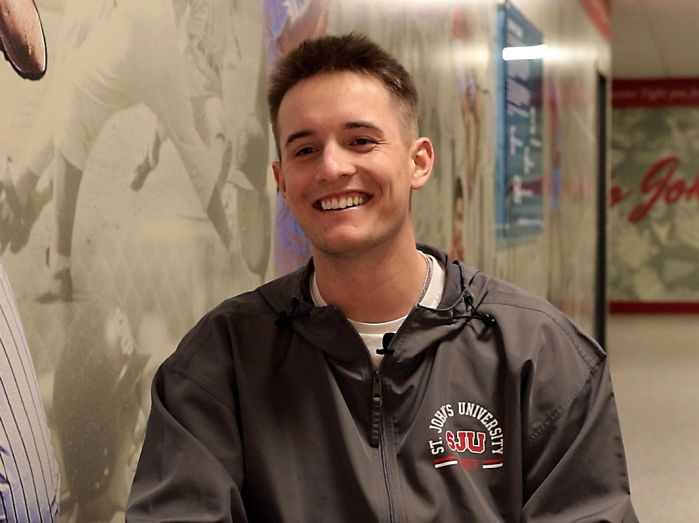
If college were a baseball metaphor, Jackson Peter would be running the bases.
Peter grew up in Elrosa, graduating from Belgrade-Brooten-Elrosa High School with a robust high school baseball career. As he started to look at colleges, he was unsure what his path was, but he knew baseball had to be a part of it. While he received an offer to play at Saint John’s University, he also wanted to explore academic options. He decided to go to SCTCC.
“I went the community college route because I knew I would be able to get an education but also not spend a ton of money when I didn’t know what I wanted to do,” Peter explained.
Plus, it didn’t hurt that the SCTCC Cyclones Baseball program had a good reputation. They’d been to the NJCAA World Series and done well at the state level for many years. And one more good thing about playing for a two-year college versus a four-year was that he had more opportunities to play.
“I mean you have to obviously work your tail off if you want to see consistent playing time at any level of any college,” he said.
There was also a bit of a shock going from being the best player on his high school team to being average. “The first day I met people from Texas, the Dominican Republic, Wisconsin, different parts of Minnesota. These guys baseball – they live and breathe baseball. It’s kind of a wake-up call.”
The hard work he put in with the Cyclones ended up being fundamental to his future. After playing for the Cyclones, he was recruited by several colleges, including Saint John’s again, but also some larger institutions. When Peter thought about what he valued at SCTCC, it was the smaller class sizes, the camaraderie. He didn’t think he’d get that with a larger school and chose to transfer to Saint John’s and play Johnnie Baseball.
Playing for the Cyclones meant he had put in a lot of work and field time, so when he transferred in as a sophomore, he was getting playing time.
“Getting those two years of experience definitely helped me level up. It put me over guys that had already been there because they hadn’t seen the field at the college level,” Peter stated. “I think if I had come to Saint John’s right out of high school, I wouldn’t have played until my junior year.”
Baseball, the small campus, and proximity to his hometown all factored into where he transferred, but also on his mind was his new career path: dentistry. Peter’s experience in a small town led him to some reflection on what his future would look like; ultimately, he wanted to help people, and oral health is something that is often overlooked in rural areas. Plus, he likes hands-on work, and being a dentist was a great way for him to do that at that career level.
“I realized there’s a need for oral health care, especially in rural communities, but I think it encompasses everything that I would want in a profession: getting to work with a team, meeting a lot of different people, caring for people, serving others,” he shared. “Since I’ve started shadowing, I’ve fallen in love with it even more.”
Transitioning from a Cyclone to a Johnnie was relatively easy, but what about transferring classes? A lot of Peter’s generals transferred, like psychology and math classes, but the science classes he took didn’t correlate with classes at Saint John’s. Overall, though, his transfer process went smoothly, and the money he saved was definitely worth it.
The four-year college experience that many people look for when starting college was not something he missed – he knew a couple guys on the baseball team when he started at Saint John’s, and now he lives off campus. By taking it one base at a time, the experience was better preparation than if Peter had gone to Saint John’s straight after high school.
“[Athletics at a community college] is not going to hold you back. You’re going to get immersed, and the work ethic that’s required to play is almost more intense than at a four-year level,” Peter said. “Plus, it’s cost effective, and it’s really going to show you what you want to do. It was a really good transition.”
While Peter’s career as a dentist is still a few years away, he would love to return to Central Minnesota and support oral health at a rural practice. If the college-to-career transition were a metaphor? Well, that’s just reaching home base.